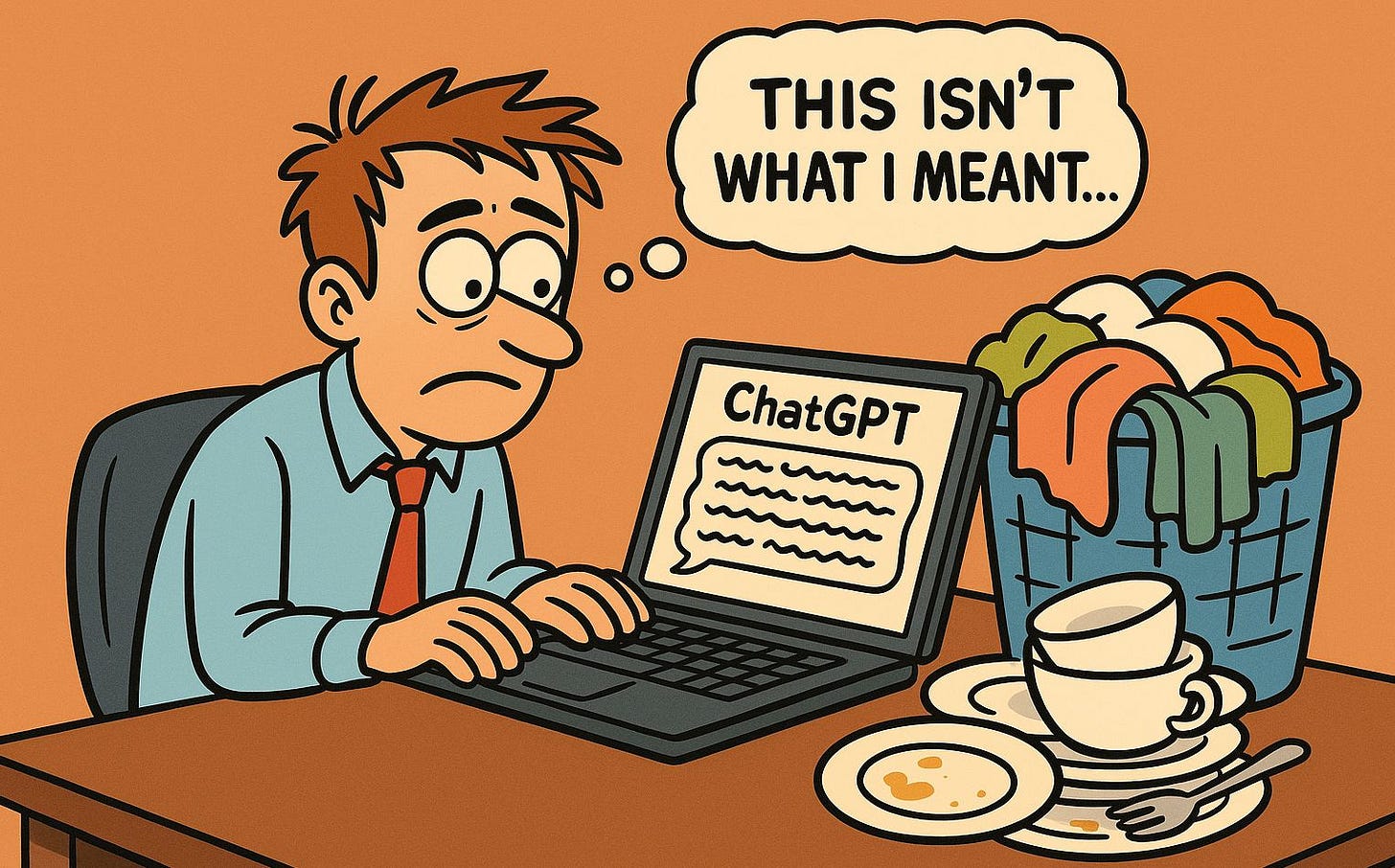I was recently reading a piece in the New Yorker – a sure-shot way showing my manager how productive I am – about AI’s failure to make humans more productive. It ended up reminding me of a viral tweet: “You know what the biggest problem with pushing all-things-AI is? Wrong direction. I want AI to do my laundry and dishes so that I can do art and writing, not for AI to do my art and writing so that I can do my laundry and dishes.”
But turns out, even with our art and writing, AI isn’t making humans any more productive. The future was supposed to arrive in a prompt. Generative AI would write our emails, crunch our numbers, maybe even make PowerPoints less soul-destroying.
Instead, we live in an office reality where ChatGPT drafts your report, you spend two hours editing its confident nonsense, and your manager still thinks you’re underperforming because the font size isn’t right. This déjà vu isn’t accidental. In 1987, economist Robert Solow famously quipped that you could “see the computer age everywhere but in the productivity statistics.”
John Cassidy, writing in The New Yorker, notes that we’re back in the same paradox: AI is everywhere—on LinkedIn slideshows, in Davos keynotes, in C-suite strategy decks—but invisible in profits or national productivity. The MIT Media Lab’s recent study found that 95% of corporate AI projects deliver zero financial return. Zero. That’s not disruption; that’s a very costly science project. The reasons are hilariously human. AI dazzles in demos but flops in production. It’s brilliant at first drafts, terrible at memory. Executives gush about “transformational potential” while their staff quietly revert to Excel.
And let’s be real—construction, retail, or childcare aren’t waiting for an LLM-powered saviour. History whispers that this is normal. Steam engines, electricity, even computers all looked overrated in their first decades. Economists call it the “J-curve”: initial disappointment before eventual payoff.
The trouble is, being stuck at the bottom of the J just feels like stagnation, especially when Wall Street has priced AI as if it were electricity, penicillin, and Taylor Swift rolled into one. So why hasn’t AI made us more productive? Because revolutions aren’t plug-and-play. They grind, stall, and disappoint before they deliver. Until then, the AI boom is less Industrial Revolution and more world’s most expensive beta test.



Literally same feelings i want AI to do my dishes and cook for me, so i can think and write better 😎
Have you noticed, GPT-5 has only gotten stupider. It vacillates and hallucinates more often, while at the same time, it gives you a participation medal every time you press a few keys and drop in a prompt.